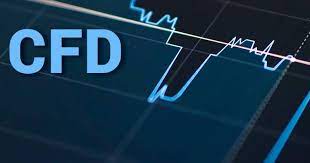Derivatives have become a cornerstone of modern financial markets, providing traders with innovative tools to navigate a diverse range of assets. Among these derivatives, Contracts for Difference (CFDs) have gained popularity for their flexibility and accessibility. In this article, we take a closer look at CFD trading, exploring their characteristics, benefits, and considerations for traders diving into the world of derivatives.
**Understanding CFDs:**
A Contract for Difference (CFD) is a financial derivative that allows traders to speculate on the price movements of various assets without owning the underlying assets. In a CFD transaction, two parties—usually a trader and a CFD provider—enter into an agreement to exchange the difference in the asset’s value from the time the contract is opened to when it is closed.
**Characteristics of CFDs:**
1. **Leverage:** CFDs are known for their leverage, which enables traders to control larger positions with a smaller upfront investment. While leverage can amplify potential profits, it also increases the risk of significant losses.
2. **Diverse Asset Classes:** CFDs cover a wide range of tradable assets, including stocks, indices, commodities, currencies, and cryptocurrencies. This diversity allows traders to access different markets and capitalize on various opportunities without owning the underlying assets.
3. **Inverse Trading:** One distinctive feature of CFDs is the ability to profit from both rising and falling markets. Traders can go long (buy) if they anticipate an asset’s price will rise, or go short (sell) if they expect it to fall. This flexibility provides a broader range of trading strategies.
4. **No Ownership of Underlying Assets:** Unlike traditional trading, where investors physically own the assets they purchase, CFD traders do not own the underlying assets. Instead, they speculate on price movements, making CFDs a more accessible way to participate in financial markets.
**Benefits of CFDs:**
1. **Flexibility:** CFDs offer unparalleled flexibility, allowing traders to engage in short-term or long-term strategies. The ability to profit from both rising and falling markets provides a diverse set of opportunities for traders.
2. **Diverse Market Access:** With CFDs, traders can access a broad range of markets globally. This diversity enables them to capitalize on opportunities across different asset classes and geographic regions.
3. **Risk Management Tools:** CFD platforms typically provide risk management tools such as stop-loss orders and take-profit orders. These tools allow traders to set predetermined levels for potential losses and profits, contributing to a disciplined trading approach.
**Considerations for CFD Trading:**
1. **Leverage Risks:** While leverage can enhance profits, it also amplifies the risk of significant losses. Traders should approach leverage with caution, using risk management strategies to protect their capital.
2. **Regulation:** Choose a reputable and regulated CFD provider. Regulatory oversight adds a layer of security and ensures that the provider adheres to industry standards.
3. **Educational Resources:** Familiarize yourself with the intricacies of cfd trading through educational resources provided by brokers or independent sources. Understanding the mechanics of CFDs is crucial for making informed trading decisions.
In conclusion, diving deep into derivatives through CFDs offers traders a versatile and accessible way to participate in financial markets. While CFDs provide unique benefits, it’s essential for traders to approach this derivative with a solid understanding of its characteristics, risks, and the importance of responsible trading practices. By doing so, traders can harness the potential of CFDs as a valuable tool in their investment arsenal.



